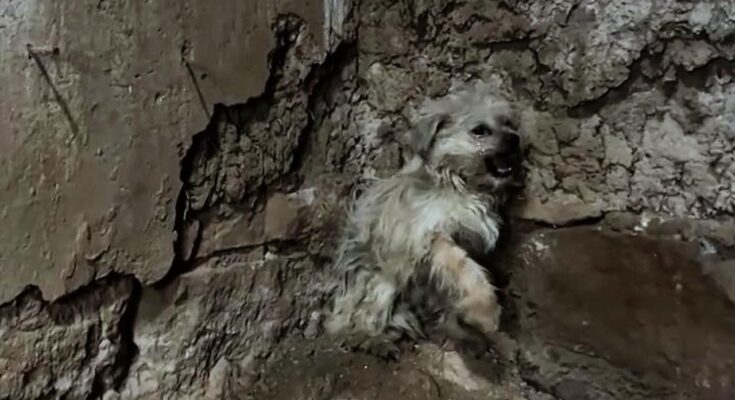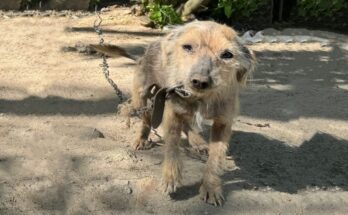The words weren’t spoken aloud, but they echoed in every movement of the small, trembling dog curled tightly into the corner of the shelter. His eyes, wide and glassy, darted around the room, bracing for the next blow that never came. Every sound—footsteps, keys, a closing door—sent him deeper into himself, shaking violently, heart pounding in panic.
He had been abused for so long that fear had become his language. Raised in a house where hands only hurt and voices only screamed, he learned to stay small, stay silent, and stay out of the way. Kindness was unfamiliar. A gentle touch felt foreign. He flinched even when someone reached out with love.
His body bore the scars—patches of missing fur, a limp from an untreated injury, ribs slightly visible from neglect—but it was the wounds on his spirit that cut the deepest. He didn’t bark. He didn’t wag. He simply existed, tucked in the shadows, hoping to be invisible.

And yet, despite everything, he still hoped. Somewhere buried under the trauma was a flicker of trust, a fragile thread that hadn’t snapped completely.
It took days of quiet visits. No sudden moves. No expectations. Just soft words, a bowl of food, a blanket, and presence. Then one day, a breakthrough: he lifted his head. The next, he sniffed a hand. Eventually, he crept forward, still shaking, but willing.
“Don’t hit me,” became “Can I trust you?”
Healing doesn’t happen all at once. But with patience and compassion, even the most broken hearts can begin to mend. This little dog had been shown the worst of humanity—but now, he was learning that love exists too.
And maybe, just maybe, he could be safe.



